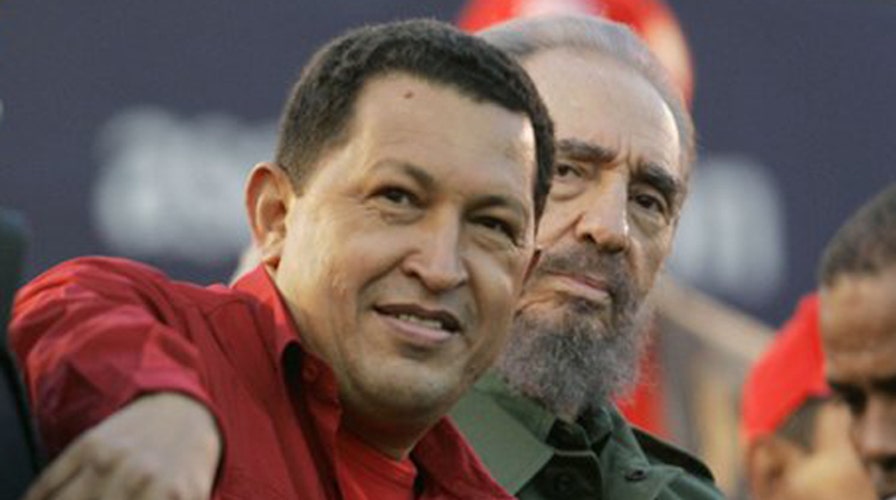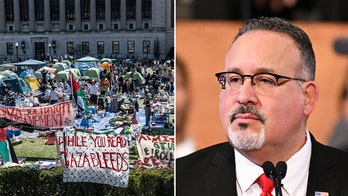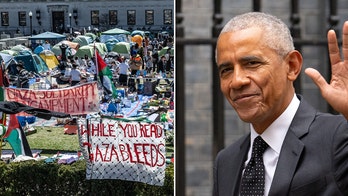U.S. officials quickly cast Hugo Chavez's death as an opportunity for America to rebuild a relationship with Venezuela and for the country itself to pursue “meaningful democratic reforms," with President Obama heralding a "new chapter" in the Latin American country's history.
Chavez, who had been battling cancer since 2011, died Tuesday after 14 years in power. An election is expected to be held in 30 days – the transition marks one of the first major challenges for newly appointed Secretary of State John Kerry.
Obama kept a measured tone in a statement released Tuesday evening.
"At this challenging time of President Hugo Chavez’s passing, the United States reaffirms its support for the Venezuelan people and its interest in developing a constructive relationship with the Venezuelan government," Obama said. "As Venezuela begins a new chapter in its history, the United States remains committed to policies that promote democratic principles, the rule of law, and respect for human rights.
Lawmakers on Capitol Hill were less reserved.
“Hugo Chavez was a tyrant who forced the people of Venezuela to live in fear,” Rep. Ed Royce, R-Calif., chairman of the House Foreign Affairs Committee, said in a written statement. “His death dents the alliance of anti-U.S. leftist leaders in South America. Good riddance to this dictator.”
He said that, while not guaranteed, “closer U.S. relations with this key country in our Hemisphere are now possible.”
Royce’s Democratic counterpart on the committee, Rep. Eliot Engel, D-N.Y., also said Chavez’s death is an “opportunity” for the people of Venezuela to “chart a new course.”
“This is a moment to review and renew our relationships with Venezuela and nations throughout the Americas based upon fundamentally shared values that bind our entire hemisphere,” he said.
Sen. Bill Nelson, D-Fla., expressed hope for a peaceful transition “with real, meaningful democratic reforms.”
Animosity between Caracas and Washington was rising even in the final hours before Chavez’s death.
Vice President Nicolas Maduro claimed “historical enemies” of Venezuela were behind Chavez’s cancer diagnosis. The Venezuelan government also expelled two U.S. diplomats from the country – accusing them of spying.
The State Department rejected the allegations and suggested it did not bode well for the future of U.S.-Venezuela ties.
“Notwithstanding the significant differences between our governments, we continue to believe it important to seek a functional and more productive relationship with Venezuela based on issues of mutual interest,” State Department spokesman Patrick Ventrell said. “This fallacious assertion of inappropriate U.S. action leads us to conclude that, unfortunately, the current Venezuelan government is not interested in an improved relationship.”
The statement was released before Chavez’s death was announced.
Several other members of Congress issued statements in the minutes following reports of Chavez's death. Rep. Tom Cotton, R-Ark., said he looks forward to promoting “a free, democratic and pro-American government in Venezuela.”
At least one member of Congress, Rep. Jose Serrano, D-N.Y., had effusive praise for Chavez.
“It is important to remember that he was democratically elected many times in elections that were declared free and fair by international monitors,” he said. “President Chavez was a controversial leader. But at his core he was a man who came from very little and used his unique talents and gifts to try to lift up the people and the communities that reflected his impoverished roots.”
Republicans later ripped Serrano for the statement.





